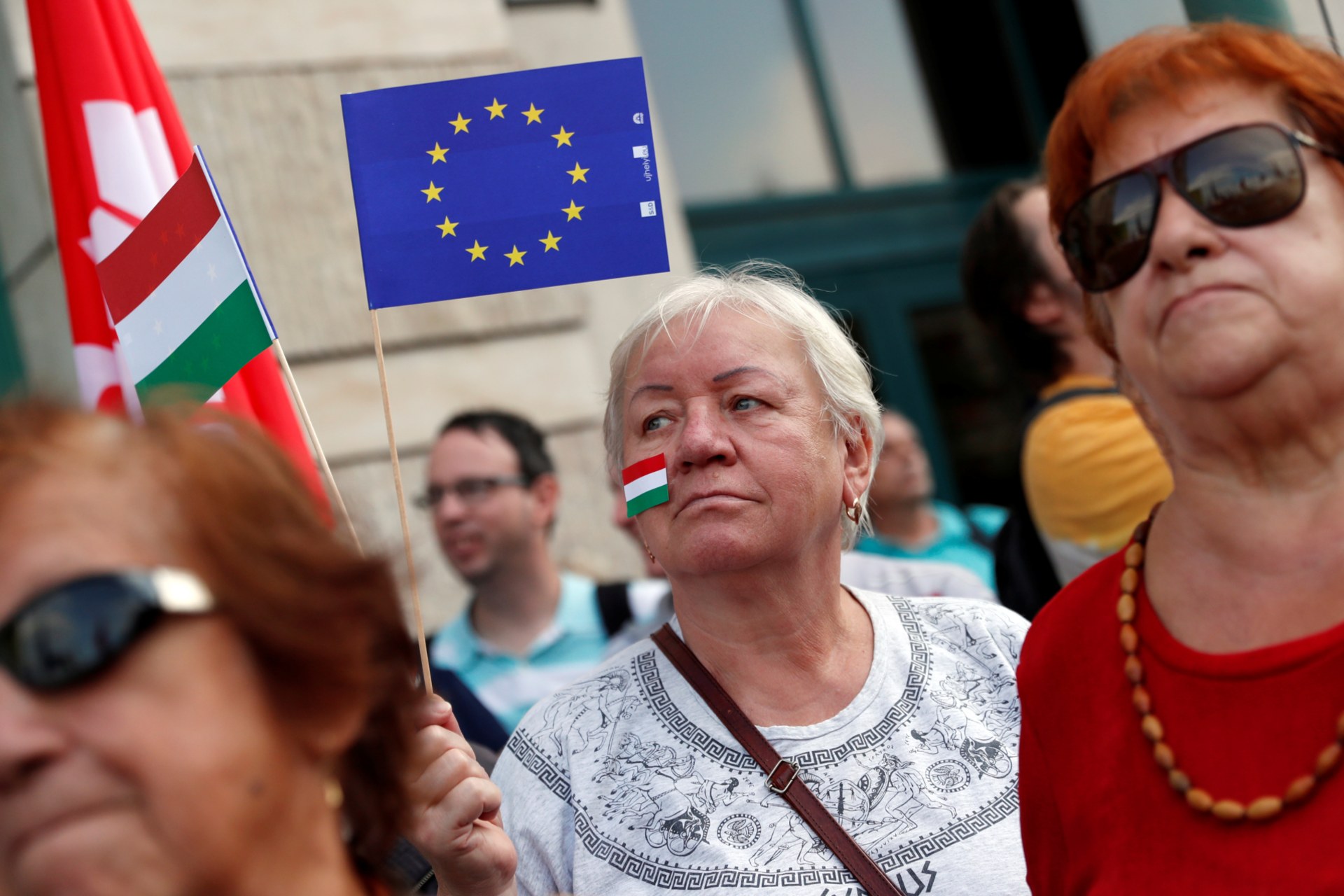Europe Wrestles With Hungary’s Populist Challenge
The European Parliament’s vote to reprimand Hungary over its growing authoritarianism has tested the EU’s readiness to stand up to illiberalism within the bloc.

By experts and staff
- Published
By
- James McBrideDeputy Managing Editor
The European Union has denounced Hungary for its self-styled “illiberal democracy,” but don’t expect a turnaround from Prime Minister Viktor Orban anytime soon. The situation reveals just how much growing populism—driven in large part by the migration crisis—has shaken the bloc’s politics ahead of 2019 elections for the European Parliament.
What’s Happening?
On September 12, the European Parliament voted by a significant majority to initiate Article 7 against Hungary. This part of the EU’s founding treaty provides for disciplinary action against member states that threaten the bloc’s core values.
The vote is the clearest example yet of the EU’s growing unease with Orban, who many warn has launched a full-scale assault on the country’s democratic institutions. Since returning to power in 2010, he has strengthened his grip on the media, stacked courts with his allies, and demonized both domestic and foreign critics. He has clashed most fiercely with German Chancellor Angela Merkel over her open-door policy on migrants from Africa and the Middle East. He has built a fence on Hungary’s southern border and refused to accept migrants as part of an EU-wide relocation plan.
In theory, Article 7 proceedings could lead to the suspension of Hungary’s EU voting rights, but Orban’s allies in the bloc—Poland in particular—are sure to veto any such move, making it a mostly symbolic gesture.
Why It Matters
Since 2015, the migration crisis as well as economic dislocation have provided fuel for nationalist and Euroskeptic forces that threaten to undermine the European project. Immigration concerns played a major role in the United Kingdom’s Brexit vote, and far-right parties are on the rise in France, Germany, Italy, Sweden, and elsewhere.
Orban, touting his brand of illiberal democracy—which includes an unapologetic defense of Christian values, anti-immigration policies, and defiance of the Brussels bureaucracy—has embraced the role of Europe’s gadfly in chief. He hopes to rally to his cause like-minded allies, such as Poland’s Law and Justice Party, which the EU has also reprimanded for its controversial judicial reforms.
The EU’s ability—or lack thereof—to rein in such challenges to the rule of law and other core principles will be closely watched across the continent, especially as the bloc struggles to deepen integration on defense and monetary policy, and maintain a unified response to pan-European issues such as migration.
What’s Next?
Orban and populists across the EU are looking to make significant gains in European Parliament elections slated for early 2019. Some predict that an insurgent wave could threaten the project of European integration. Well aware of this risk, the EU has already taken steps to blunt the nationalist upsurge. In June 2018, for example, the bloc agreed to exert greater control over the flow of migrants by tightening its external borders and setting up new migration processing centers in northern Africa.
Many in the European People’s Party (EPP), the center-right coalition currently running the European Parliament, want Orban kicked out. They say his presence is giving cover to authoritarianism and pulling the entire party to the right. Others say that expelling Orban could give him even more power as a leader of a rival Euroskeptic bloc. For now, though, the EPP’s leadership says Orban can stay—even though many of its members voted in favor of Article 7 proceedings.
Related Reading
European Commission President Jean-Claude Juncker has proposed a major expansion of the EU’s border authority.
The EU has proven largely powerless to influence Hungary or Poland.
Italy has played hardball, both with the EU and Hungary, over migration.
President Donald J. Trump is reorienting the U.S. approach to Eastern Europe’s illiberal democracies.